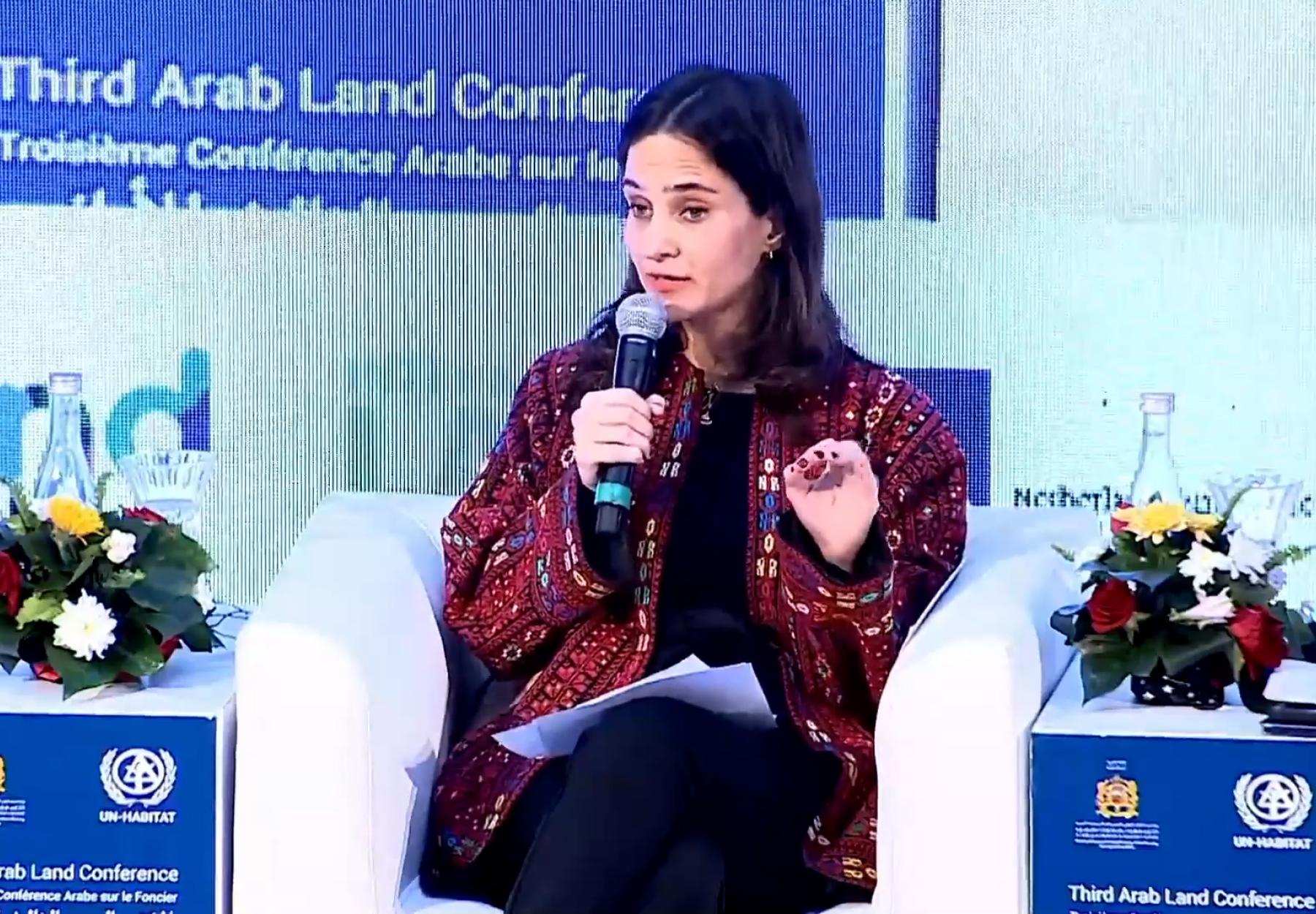
APN | Rabat – Morocco
18-20 February 2025
APN participated in the Third Arab Land Conference, held in Rabat, Morocco. The event was organized by the Moroccan Ministry of Urban Planning, Housing, and City Policy, alongside UN-Habitat, the Global Land Tool Network, and the Arab Land Initiative. It brought together 1,300 in-person and virtual participants, including ministers, experts, academics, and representatives from civil society and the private sector.
Innovation and Sustainable Investment in the Land Sector
During the high-level session on "Land sector innovation for sustainable investments and housing", APN General Manager, Mariam Al Jaajaa, a keynote speaker, emphasized the need for investments rooted in social, economic, and political justice. She cautioned against the misuse of innovation and investment narratives to justify land grabs and stressed the importance of genuine partnerships with local communities.
Al Jaajaa also highlighted that Western economic and social development models—especially privatization and individualism—cannot simply be applied to the region. While it is valuable to learn from their successes and failures, local institutional, cultural, and geographical contexts, as well as the region’s stage of economic development, are fundamentally different.
In discussing justice in land investment, she pointed to U.S. President Trump’s remarks—such as "I will buy and own Gaza" and "We will take it and keep it"—as explicit manifestations of colonial capitalism. She stressed that such rhetoric is not mere words but reflects a systematic ideology that drives injustice, reinforcing the urgency of the struggle for justice.
The Risks of ‘Green Grabbing’
In the session on “Lessons Learned on Biodiversity and Drought Resilience,” Al Jaajaa warned of the dangers of "green grabbing", where land is seized under the guise of environmental conservation without securing local communities’ rights—such as through the fragmentation of communal lands. She also criticized international environmental agreements for failing to protect human rights and food security due to the absence of regulatory frameworks that prevent speculative and unsustainable land investments.
Defending Palestinian Land Rights
In a closed session on Palestine, Al Jaajaa underscored the need to advocate for all Palestinian territories, including the West Bank, Gaza, and the 1948 territories, particularly the Naqab region. She called for the urgent rehabilitation of Gaza’s agricultural sector and urged international organizations to support agricultural projects in Area C, rather than limiting efforts to Areas A and B in the West Bank.
She also demanded intensified economic and political boycotts against the Israeli occupation and its supporters.
The three-day conference featured high-level ministerial panels, discussions on the role of civil society, and technical sessions on land governance, property registration, housing solutions, and sustainable land financing.